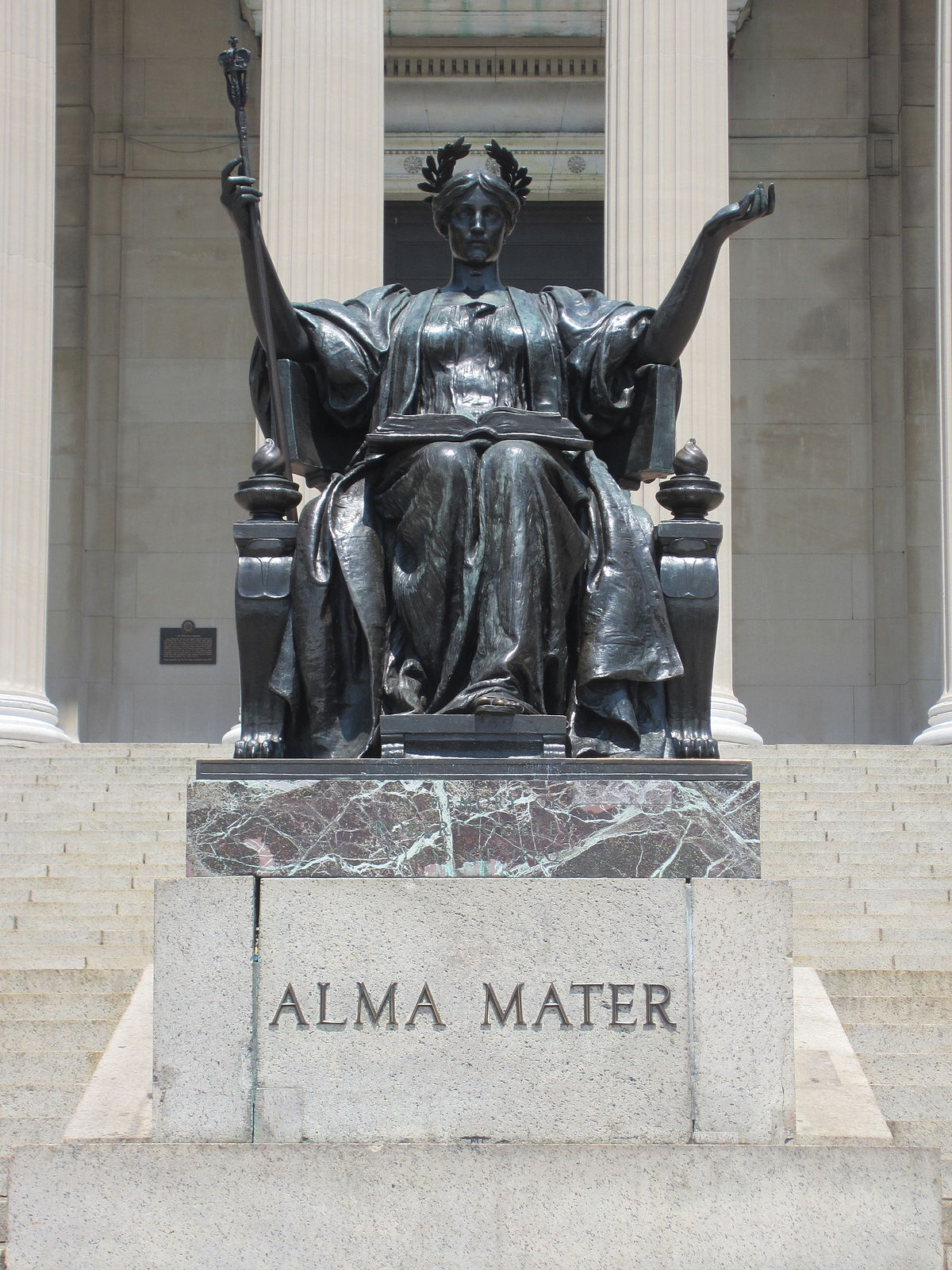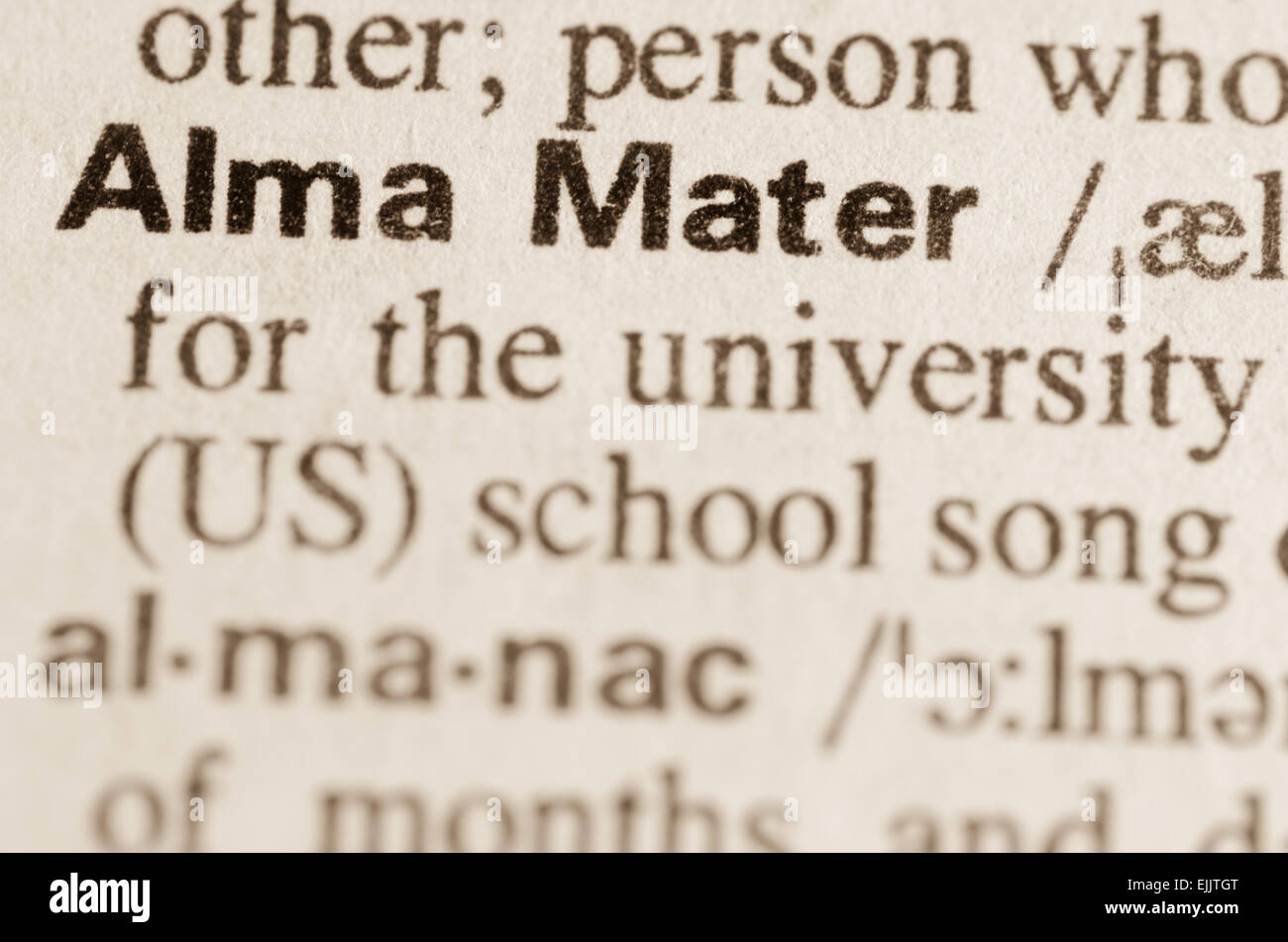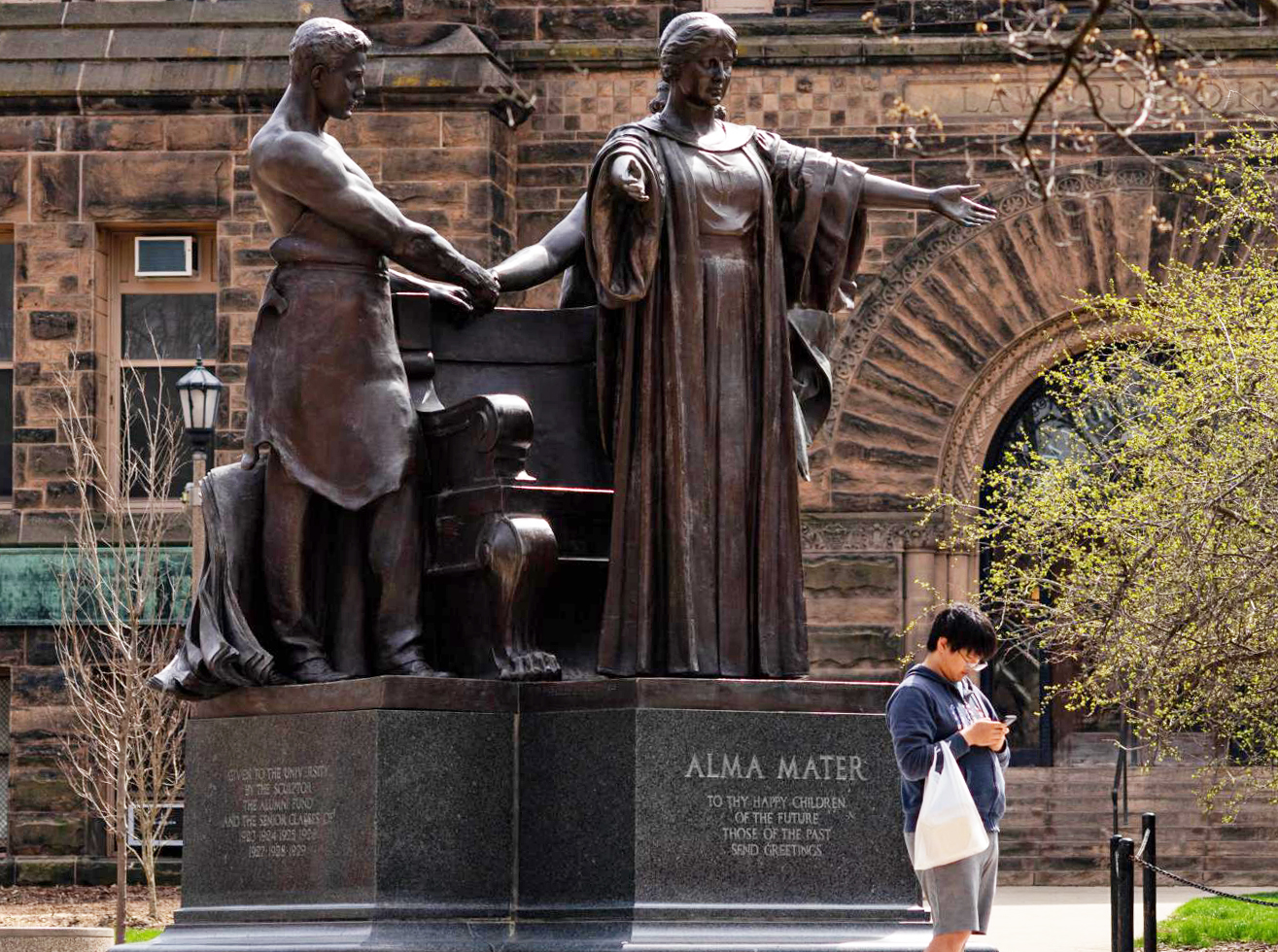Alma Mater Meaning - Your Educational Home
Have you ever heard someone talk about their "alma mater" and wondered what that phrase actually means? It's a rather special expression, one that many people use to refer to a place that truly shaped who they are. This phrase, you see, isn't just a simple term; it carries a deep sense of connection and history for a lot of folks. It's about more than just a building or a campus, but rather the very essence of a learning institution.
The words themselves, "alma mater," come from an old language, Latin, and they hold a beautiful sentiment. When you look at what those two words literally translate to, you begin to grasp why they're used to describe a school or a university. It's a way, in some respects, of giving a warm, nurturing personality to a place where knowledge was shared and growth happened.
So, if you've been curious about this term and what it truly signifies, you're in the right spot. We're going to explore the origins of "alma mater meaning," how people use it, and why it holds such a significant place in the hearts of those who have passed through its halls. It's almost like a secret handshake for people who share a common educational past.
Table of Contents
- What Does Alma Mater Meaning Actually Stand For?
- How Does Alma Mater Meaning Connect to Your School?
- Is Alma Mater Meaning Just About Where You Studied?
- What Dictionaries Say About Alma Mater Meaning?
- When Did Alma Mater Meaning Start Being Used?
- Understanding Alma Mater Meaning - More Than Just a Place
- Why Do People Use the Term Alma Mater Meaning?
- Exploring Alma Mater Meaning Through Examples
What Does Alma Mater Meaning Actually Stand For?
The phrase "alma mater" has a very interesting background, rooted deeply in the Latin tongue. When you break it down, you find that it literally translates to something like "nourishing mother" or, in other interpretations, "bountiful mother." This isn't just a random set of words, you know; it's a way of giving a human-like quality to an educational institution. It's almost as if the school itself is seen as a parent, providing sustenance and growth, much like a mother would for her children.
This idea of a "nourishing mother" really captures the essence of what a school aims to do for its students. It's about providing intellectual food, supporting development, and helping people grow into their full potential. So, when someone speaks of their alma mater, they're not just naming a place; they're referring to an entity that, in a way, gave them life skills and knowledge. It's a rather poetic way to look at a place of learning, isn't it? This particular "alma mater meaning" really shows how much affection people can hold for their former places of study.
The phrase, therefore, personifies a school, a college, or a university that a person has been a part of, either by attending classes there or by earning a degree from it. It gives the institution a kind of warm, caring presence, suggesting that it nurtured the individuals who passed through its doors. It’s not just a building, but a living, breathing influence on one's life, which is pretty cool, honestly. This aspect of "alma mater meaning" makes it quite unique among terms related to education.
How Does Alma Mater Meaning Connect to Your School?
At its most basic level, the meaning of "alma mater" refers to the school, college, or university which someone has attended or from which they have received a graduation certificate. It's the place where you spent those formative years, learning, growing, and probably making some pretty good memories. It’s the academic home that helped shape your ideas and your path forward, in a way.
This connection goes beyond just the academic records. It’s about the experiences, the friendships made, and the lessons learned that extend far beyond textbooks. Your alma mater is the place that, for a time, was your world, providing a foundation for everything that came next. It's where you learned how to think, how to question, and how to become the person you are today. That's a big part of "alma mater meaning" for many people.
So, when someone mentions their alma mater, they're really talking about that special institution that played a significant role in their educational journey. It’s a term that carries a sense of pride and belonging, often evoking feelings of nostalgia and gratitude. It's the place that, in a sense, gave birth to your adult intellect, which is a rather powerful concept, don't you think? The deep roots of "alma mater meaning" are quite evident in how individuals talk about their former schools.
Is Alma Mater Meaning Just About Where You Studied?
While the primary use of "alma mater" does indeed point to the school, college, or university where you studied, its application can extend a bit further than just that. It's a term that encapsulates the entire experience and the ongoing relationship a person has with their former institution. For instance, it's often used when talking about the official song of a school, the one that evokes strong feelings of unity and pride among its students and alumni. This is a subtle but important aspect of "alma mater meaning."
Consider, for example, how people might contribute financially to their old stomping grounds. You might hear stories, like someone donating a large sum of money, say, $20 million, to their alma mater, such as Columbia University. This act isn't just about giving money; it's a demonstration of continued affection and support for the place that helped them achieve their successes. It shows a lasting bond, a sense of giving back to the place that once gave so much to them. This kind of generosity really speaks to the enduring "alma mater meaning."
The term also pops up in discussions about alumni events, reunions, or even when people wear clothing or display items with their school's insignia. These actions are all ways of expressing that ongoing connection to their educational home. It's a way of saying, "This place is still a part of me," long after the graduation ceremony has passed. So, it's pretty clear that "alma mater meaning" extends well beyond simply the act of attending classes. It's a lifelong relationship, honestly.
What Dictionaries Say About Alma Mater Meaning?
When you look into what different language resources have to say about "alma mater meaning," you'll find a consistent picture. Many dictionaries, like the Oxford Advanced Learner's Dictionary, describe it as a countable noun, usually appearing in the singular form, often with a possessive word like "my" or "his" or "her" in front of it. This just means it refers to one specific institution that belongs to someone, which is quite straightforward, really.
According to Vocabulary.com and the Collins English Dictionary, along with many other English dictionaries such as the American Heritage Dictionary of the English Language, the term "alma mater" consistently points to a school, college, or university where one has studied and, typically, from which one has earned a degree. These reputable sources all agree on the core idea, reinforcing that it's a widely accepted term with a clear definition. It's pretty much a standard definition across the board, you know. This uniformity in defining "alma mater meaning" helps avoid confusion.
They often provide examples of how to use "alma mater" in a sentence, helping people understand its practical application. For instance, they might show a sentence like, "The school, college, or university that somebody went to," or "He donated $20 million to his alma mater, Columbia." These examples clarify that the phrase is about a specific educational place a person was connected to. So, it’s not just a theoretical idea; it's a practical word for a specific relationship, which is actually quite useful. This helps cement the common "alma mater meaning" in everyday language.
When Did Alma Mater Meaning Start Being Used?
The history of the phrase "alma mater" goes back quite a ways, originating from Latin, as we've discussed. It was, in its earliest uses, a title given to various goddesses, particularly Ceres, the goddess of agriculture, or Cybele, an ancient mother goddess, symbolizing their role in providing nourishment. Over time, its application changed, eventually making its way into academic circles. This shift is a pretty interesting part of the phrase's story, you know.
The oldest documented use of the expression to refer specifically to a university in the English language dates back centuries. This shows that the concept of viewing a university as a "nourishing mother" isn't a new idea; it's been around for a very long time, evolving as educational institutions themselves grew and became more central to society. It's a rather enduring way to describe these places of higher learning, honestly. The longevity of "alma mater meaning" speaks volumes about its cultural impact.
So, while the phrase has ancient roots, its adoption into common English to describe one's former school or university has a long and storied past. It’s not just a passing trend; it's a deeply ingrained part of how we talk about our educational past. This historical depth adds another layer to the overall "alma mater meaning," connecting us to generations of students who felt a similar bond with their learning environments. It's pretty cool to think about, actually.
Understanding Alma Mater Meaning - More Than Just a Place
When people talk about their "alma mater," they are often referring to more than just a physical location or a set of buildings. The phrase captures a feeling, a sense of belonging, and a deep appreciation for the time spent there. It’s about the growth that happened, the knowledge that was gained, and the person one became while being part of that particular educational community. It's a bit like talking about your childhood home; it's not just the house, but all the memories and experiences tied to it, you know.
This "alma mater meaning" often carries an emotional weight. It's the place that helped shape your intellect, your values, and perhaps even your career path. The idea of it being a "nourishing mother" really hits home for many, as it implies a nurturing environment that fostered development and provided the tools needed for life beyond graduation. It’s a very personal connection, honestly, for a lot of people.
So, it's not just a label for an institution. It's a term that embodies the entire relationship between an individual and the place where they received a significant part of their schooling. It’s a way of acknowledging the profound influence that institution had on their life, almost like a foundational experience. This deeper "alma mater meaning" is what makes the phrase so powerful and enduring in conversation.
Why Do People Use the Term Alma Mater Meaning?
People use the term "alma mater" for several reasons, all of which boil down to a strong sense of connection and gratitude. For one, it provides a concise and respectful way to refer to the place that provided them with their formal education. Instead of saying "the university I went to for four years," they can simply say "my alma mater," which is pretty efficient, you know.
Beyond convenience, the phrase conveys a sense of pride. When someone talks about their alma mater, they are often expressing a feeling of accomplishment associated with having graduated from that particular institution. It’s a way of identifying with a larger community of people who share a common educational background, which is actually quite unifying. This shared experience is a big part of the collective "alma mater meaning."
Furthermore, using "alma mater" can also signify a lasting bond. It's not just a place you visited; it's a part of your personal history. Many individuals feel a deep sense of loyalty and affection for their former schools, viewing them as places that truly cared for their intellectual and personal growth. It’s a way of honoring that relationship, in a way. This enduring connection is at the heart of why "alma mater meaning" resonates so deeply.
Exploring Alma Mater Meaning Through Examples
To really grasp "alma mater meaning," looking at how it's used in everyday talk can be quite helpful. You often hear it when people are reminiscing about their college days or discussing their academic background. For example, someone might say, "I'm heading back to my alma mater for the big homecoming game this weekend," showing a clear connection to their old school.
Another common scenario involves professional networking. Someone might introduce themselves by saying, "We actually went to the same alma mater," immediately establishing a shared history and a potential bond. This use highlights how the phrase can act as a bridge between individuals who might not otherwise know they have such a significant connection, which is pretty neat, honestly. This shared "alma mater meaning" helps build community.
You might also hear about it in news stories or announcements, especially concerning donations or notable achievements. For instance, a headline could read, "Prominent scientist gives generous gift to her alma mater," indicating that the individual is supporting the institution where they received their foundational training. These examples clearly show how the phrase is used to refer to that special educational home, cementing the broad "alma mater meaning" in public discourse.

Alma mater - Wikipedia

Alma Mater Definition, What Do You Call The School You Graduated From

Opinion | Alma Mater possesses undervalued history - The Daily Illini